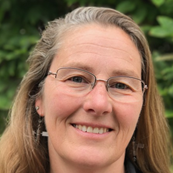Registration rates:
$32 for student members (limited amount available for $0 on first come, first serve basis)
$64 for members
$204 for non-members
iThis virtual short course will teach participants how to access ocean satellite data products and how to leverage the ERDDAP data platform to to visualize, subset, download and work with data.
| Registration close date: | CANCELED - Wednesday, January 12, 2022 at 11:59pm ET |
| Participant cap: | 50 |
Registration rates:
$32 for student members (limited amount available for $0 on first come, first serve basis)
$64 for members
$204 for non-members
Registration policy:
AMS requires a valid payment to be made within 5 days of the start of a course or sooner if registration has reached capacity. You will be contacted by AMS staff if payment is required. Refunds will not be issued to attendees within 7 days of the start of a course. Registrations are not transferable or exchangeable.
Satellites make routine observations from which several ocean parameters such as sea surface temperature, ocean color, sea level, ocean winds, and salinity can be derived. Ocean observations from space have the advantage of broad spatial and temporal coverage that complement in situ measurements.
The NOAA CoastWatch/OceanWatch/PolarWatch program provides free and open access to these ocean products through a variety of platforms. This tutorial will teach you where to find data and how to leverage the ERDDAP data platform to visualize, subset, download and work with data. The day will be a mix of lectures on ocean satellite data, demonstrations and hands-on tutorials in R and Python.
The focus will be on NOAA ocean satellite data products but the tutorials will be useful for working with any type of gridded NetCDF data. This session will be most beneficial for participants who already have some basic experience working in R or Python but who are not familiar with NetCDF or satellite data.
Participants will need access to Zoom through either the web or desktop application.

Cooperative Institute for Satellite Earth System Studies (CISESS), University of Maryland

NOAA Southwest Fisheries Science Center, Environmental Research Division

University of California, Santa Cruz